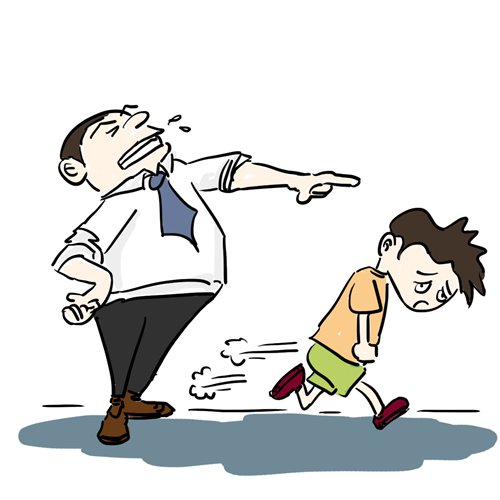
Illustration: Chen Xia/GT
As a mother with my own rebellious teen daughter, I used to help out my fellow parents in Shanghai spread news on social media whenever one of their teenaged children had run away from home due to a dispute with parents or being criticized by school teachers.
Usually these kids were found by the end of the day, hanging out at the mall or at a friend's home, which was followed up by a request from their parents to delete the post, saying we should "respect their privacy" and "just forget it."
But after the latest runaway incident that occurred last week, in which a local 13-year-old boy had "disappeared" after his teacher summoned his parents to school to inform them that he missed some homework, I feel I've had enough of all the false hysteria.
This time, a citywide hunt for the boy, including posters in the rear windows of the city's taxi fleet, was initiated.
Like me, the public was also divided. Some said his teacher should be responsible because she made a fuss over something so trivial, which caused the boy to become upset. Others blamed the parents for not raising their child well.
Before I became a mother I used to run an education center, so I of all people know exactly how hard it is to be a good teacher while also trying to please every parent.
Teachers absolutely should openly communicate with parents about their child's progress, but teachers should also be allowed to have their own individual standard about what constitutes bad behavior or poor scholastic performance.
We as parents must place our faith and trust in teachers to evaluate the situation and decide if a phone call or meeting is warranted.
It is to be expected that no student wants to get in trouble with their teacher and parents, and some will react negatively to being scolded.
But when a television news crew interviewing the distraught parents of that missing boy asked them what they had to tell their son, in the hopes that he was watching, the mother and the father both tearfully promised that if he'd just come back home they'd "listen to him more and less to others" (meaning his teachers).
I must say I was quite disappointed to hear them cave in to their child's sense of entitlement. Aside from the fact that he couldn't take a little scolding, which demonstrates that very few adults in his life have ever dared criticize or punish him, saying they'll do whatever he wants is setting a very bad precedent for their household, his school and for our society.
How are his teachers supposed to treat this boy from now on, knowing that the slightest condemnation could send him scurrying away? Will they still be allowed to punish him for not doing his homework or for failing a test?
And how about his classmates; once they see the special treatment he is receiving, who will be the next student to run away just to get out of a bad grade?
I'm not being a one-sided disciplinarian about this. To gain a teenager's perspective on this particular case, I spoke with my daughter to ask how she would have handled it and to express to her how I hope she would handle it.
I also made it clear to her that I don't spoil her because I don't love her; on the contrary, I love her SO much that I refuse to spoil her, knowing that she will become a better person for it.
As I discussed with her, whenever in life someone points out something we have done wrong or inappropriately, it is to our benefit. We should always be willing to find fault within ourselves.
Self-criticism and self-improvement can only make us better, stronger and smarter; it can never hurt us.
Equally important, more public dialogue and debate about good parenting in China will be of tremendous benefit to our society and the future generations being raised to lead it.
Running away from our problems is never a viable solution, but nor is absolving ourselves of our faults.
The opinions expressed in this article are the author's own and do not necessarily reflect the views of the Global Times.

